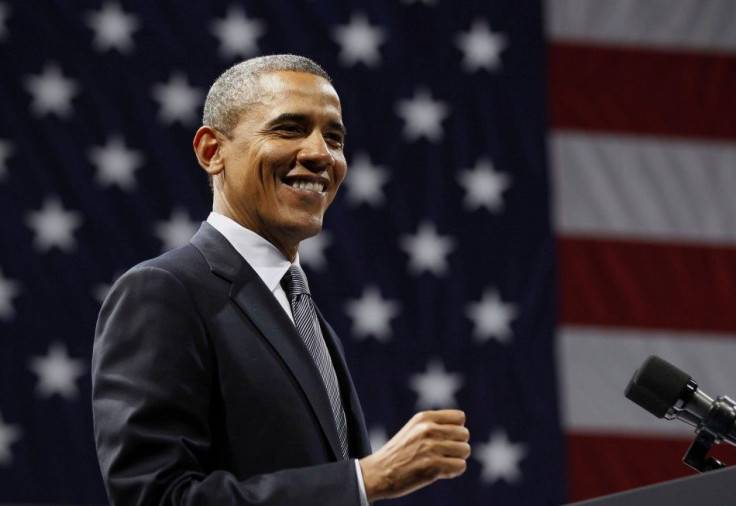Obama's State of the Union Takeaways: Lofty Goals, Unlikely Outcomes

President Barack Obama delivered a State of the Union address Tuesday that was heavy on populist themes, highlighting successes from his first three years in office and outlining his goals for the year ahead.
"We believe, given the partisan divide in Washington and that this is an election year that few, if any, of the policy goals outlined in the speech will be implemented by Congress. We do highlight that the most likely initiatives are those that do not require legislation, such as the creation of a mortgage fraud unit," said Edward Mills, an analyst at FBR Capital Markets.
The President announced he will be sending a proposal to Congress that gives homeowners the opportunity to refinance their mortgage at market rates. This refinance program would be paid for with a bank tax.
Mills believes this refinance program will be dead on arrival in Congress, as Congressional Republicans are opposed to additional intervention in the mortgage market and are philosophically opposed to a bank tax. This should be confirmation that the Administration realizes a mass-refinance program can only be achieved by legislation and not by regulatory fiat.
Obama announced the creation of a mortgage fraud enforcement unit led by the U.S. Justice Department and states attorneys general. The lead at the state level is reportedly New York Attorney General Eric Schneiderman, who has been heading the investigation into the securitization practices of private-label securities.
Mills believes this will reignite concerns related to the securitization of private-label securities. Creating this unit could give political cover to attorneys general, who have been concerned that a robo-signing settlement would hinder further investigations into securitization.
Consumer protections received a strong mention in the speech, including a call for regulation of payday loans, credit cards and mortgage lenders.
Mills believes much of the regulation for the credit card and mortgage industry is outlined in recently passed legislation, while regulation of the payday industry is more open-ended. He still believes that regulation of the payday industry is coming and the biggest question is severity.
The President extolled the benefits of responsible development of shale gas, reinforcing the analyst's view that harmful regulation is unlikely, although Obama stopped short of calling for federal funding of natural gas vehicles.
The speech avoided initiatives that would require Congressional action and instead reiterated plans for offshore leasing through 2017 requiring disclosure of hydraulic fracturing fluids on federal lands and increasing the federal government's purchase of renewable power and expansion of access to renewable energy leases on federal lands.
The speech defended increased regulation of offshore drilling safety and mercury regulation for power plants. The President renewed previous years' calls for increased taxation on oil companies and a federal renewable energy standard, which Mills views as unlikely this year.
The President called for tax reforms, including establishing a minimum tax rate for any income above $1 million. Tax reform will be a key election issue, as the Bush-era tax cuts are scheduled to expire on December 31.
Mills said the push for a new alternative minimum tax for higher wage earners is a departure from his previous stance of allowing Bush-era tax cuts above $250,000 to expire.
The existing payroll tax cut is scheduled to expire at the end of February and the President made the push for a full-year extension. Mills believes this remains the base case but the final agreement will hinge on how the deal is paid for and the XL pipeline.
© Copyright IBTimes 2024. All rights reserved.











